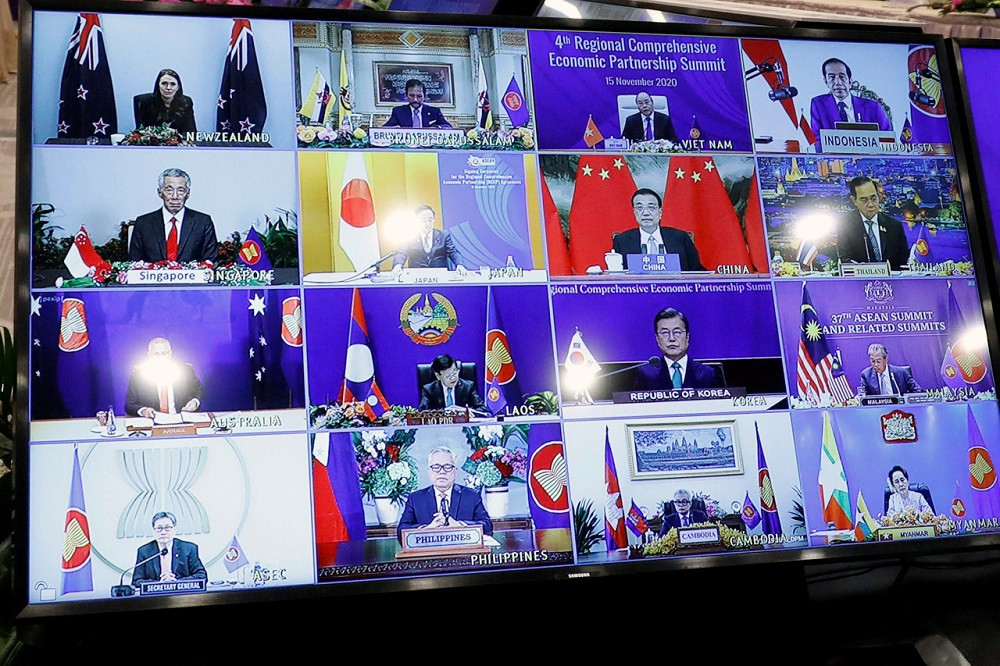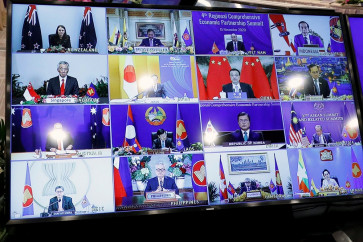Popular Reads
Top Results
Can't find what you're looking for?
View all search resultsPopular Reads
Top Results
Can't find what you're looking for?
View all search resultsReinvigorating the RCEP for a stable and prosperous Asia-Pacific
Despite its monumental scope and profound promise, the RCEP's full potential remains largely untapped.
Change text size
Gift Premium Articles
to Anyone
I
want to talk about something crucial for the future of our region: the Regional Comprehensive Economic Partnership, or RCEP. Signed in 2020 and entering into force in 2022, the RCEP is the world's largest free trade agreement. It encompasses 15 countries, including all 10 ASEAN member states, plus China, Japan, South Korea, Australia and New Zealand.
Together, these economies represent a staggering 30 percent of global GDP, 30 percent of global trade and over 2.3 billion people. Its potential is immense, promising to lift incomes by an estimated US$653 billion by 2030 across the region.
Yet, despite its monumental scope and profound promise, RCEP's full potential remains largely untapped. This is precisely why we urgently need an RCEP Leaders' Summit, and we need it now, if possible, during the upcoming 47th ASEAN Summit and Related Meetings in October.
Consider this stark fact: it has been six years since the last leaders-level RCEP meeting. That meeting took place in 2019, before the agreement was even finalized. Since its entry into force in 2022, there has been no summit to assess progress, provide strategic direction or renew political commitment. This six-year gap, especially in such turbulent times, is simply unacceptable. Without leadership-level attention, the RCEP risks becoming a technical agreement with low-level commitment, lacking the visibility and decisive direction it so desperately needs.
Why is this summit so critical right now? Because the global economic landscape is becoming increasingly fragmented and fraught with protectionism. We are witnessing a troubling rise in inward-looking trends. From the re-imposition of tariffs by major global players, such as United States President Donald Trump's widely discussed 2025 "Liberation Day" tariffs that threaten to sharply raise duties on imports from many Southeast Asian countries like Vietnam, Cambodia and Thailand, to the increasing securitization of economic policy, trust in the rules-based multilateral trading system is eroding. The World Trade Organization, for instance, has seen its dispute settlement system rendered effectively non-functional for the past six years.
In this environment, the RCEP offers an essential regional alternative. It provides a powerful platform where our countries can coordinate, maintain open markets and develop shared rules. This is vital not just for trade, but for managing issues like trade diversion, where exports originally bound for one market might be redirected to ours, potentially straining local industries and triggering new trade barriers within the region. An RCEP Leaders' Summit would send a powerful political signal of our collective commitment to upholding multilateralism and our readiness for a coordinated response to the current geo-economic situation.
While ASEAN has taken commendable steps to respond collectively to global dynamics, such as issuing joint statements, it is not enough on its own. Trade redirection, export shocks and investment uncertainty affect all RCEP members, not just ASEAN. Through the RCEP, ASEAN can work with partners like China, Japan, Korea, Australia and New Zealand to coordinate responses, manage trade diversion and stabilize regional supply chains.



















